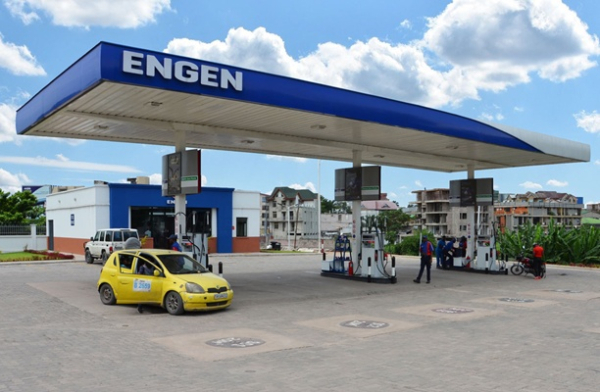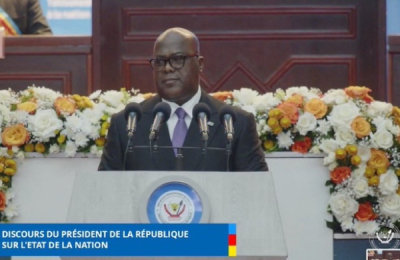Over the past year, oil suppliers active in the Democratic Republic of Congo (DRC) recorded losses and shortfalls of $31.5 million, down from $288.6 million in 2023 (-89%). Daniel Mukoko Samba, Minister of the National Economy, disclosed the figures on May 6, 2025. This gap is bridged by subsidies.
Without providing specific figures, Calixte Ahokpossi, mission chief of the International Monetary Fund (IMF), confirmed Samba’s report: “We found that losses and revenue shortfalls have decreased significantly.” Earlier this month, the IMF began the first review of its new program with the DRC.
This sharp decline contrasts with the IMF’s January 2025 report, which estimated deficits of $77 million for the first half of 2024-more than double the annual total now announced by Daniel Mukoko Samba. According to the latest certified figures, shortfalls amounted to $16 million in the first half and $15.52 million in the second half of 2024.
While Congolese authorities have not explained this discrepancy yet, the IMF report notes that the government has pledged “to strengthen transparency in the calculation and certification of losses and shortfalls due to oil companies, by improving the operational capacities of the Strategic Products Price Regulation Committee, set up in February 2023, and by involving all the ministries concerned”. This suggests earlier assessments may have been inaccurate.
Planned improvements include revising methods for calculating revenue losses, rigorously monitoring key parameters influencing petroleum product pricing, and ending the cumulative remuneration of oil logistics companies in the tariff structure by eliminating the mutualization of their operating costs.
Roadmap
These measures are part of a roadmap adopted in November 2023, following a May 2023 audit on the price structure and an IMF technical assistance mission in July 2023. In September 2024, the government launched molecular tagging in the eastern zone to prevent subsidized fuel diversion to ineligible uses. The decision to exclude the mining sector from diesel subsidies in the southern zone also aligns with this reform effort.
The IMF’s July 2024 report acknowledged that the roadmap helped “contain the accumulation of liabilities to oil companies, which were reduced from $545 million to $122 million in 2023.” The institution encourages continued efforts to reduce revenue shortfalls. However, subsidies could rise again in 2025 due to a 13% drop in pump prices, which has increased domestic consumption of finished petroleum products to nearly 50%.
This article was initially published in French by Pierre Mukoko and Boaz Kabeya (intern)
Edited in English by Ola Schad Akinocho










